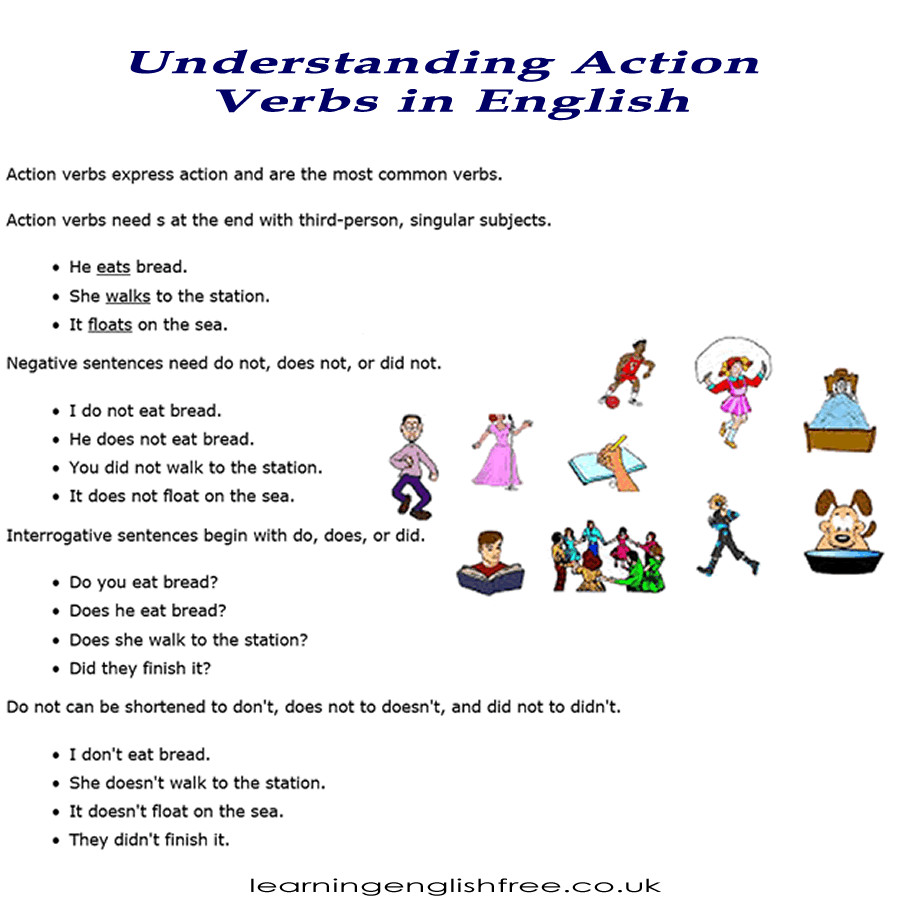The Role and Use of Action Verbs in English Grammar
Action verbs are fundamental elements in English sentences that describe what a subject is doing. These verbs are vital for expressing actions, processes, and states of being. Understanding how to use action verbs correctly is crucial for constructing clear and dynamic sentences, essential for effective communication in both spoken and written English.
What are Action Verbs?
- Definition: Action verbs are words that express physical or mental actions performed by the subject of the sentence.
- Importance: They are the driving force of a sentence, bringing life to the subject and offering clarity about what is happening.
Using Action Verbs with Different Subjects:
- Third-Person Singular Subjects: Action verbs typically require an ‘s’ at the end when the subject is third-person singular (he, she, it).
- Examples:
- "He eats bread."
- "She walks to the station."
- "It floats on the sea."
- Examples:
- Plural Subjects: When the subject is plural, the action verb doesn't take the ‘s’.
- Examples:
- "They eat bread."
- "We walk to the station."
- "The boats float on the sea."
- Examples:
Forming Negative Sentences with Action Verbs:
- Usage of 'Do not,' 'Does not,' and 'Did not': Negative sentences are formed using auxiliary verbs 'do not' (don’t), 'does not' (doesn’t), or 'did not' (didn’t) with the base form of the action verb.
- Examples:
- "I do not (don't) eat bread."
- "He does not (doesn't) eat bread."
- "You did not (didn't) walk to the station."
- Examples:
Creating Interrogative Sentences with Action Verbs:
- Starting with 'Do,' 'Does,' or 'Did': Questions are formed by beginning the sentence with 'do,' 'does,' or 'did.'
- Examples:
- "Do you eat bread?"
- "Does she walk to the station?"
- "Did they finish it?"
- Examples:
Common Action Verbs and Their Usage:
- Walk - "The dog walks in the park."
- Run - "She runs every morning."
- Jump - "The children jump over the puddle."
- Think - "I think about the problem."
- Eat - "They eat lunch at noon."
- Drink - "He drinks water after exercise."
- Write - "She writes a letter."
- Read - "We read the book together."
- Speak - "He speaks at the conference."
- Listen - "They listen to the teacher."
Enhancing Communication with Effective Use of Action Verbs
The correct use of action verbs is a cornerstone of fluent and effective English. They allow speakers and writers to convey actions clearly and make their sentences more engaging and informative.

